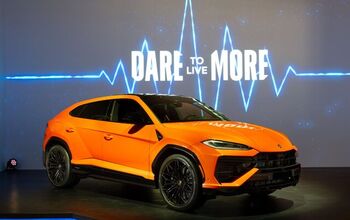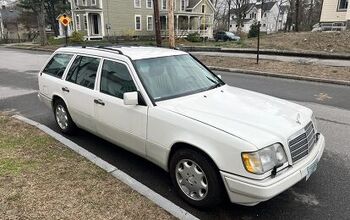Japanese Auto Industry: We're Outta Here

Again and again, Japanese automakers had been warning that they cannot stomach the strong yen, and that it will eventually cost jobs. Today, the yen stood at 76.6 to the dollar, and Japanese carmakers are packing.
Mitsubishi originally wanted to sharply increase Japanese production to make up for lost volume due to the tsunami. The company now “suddenly halved its plan to hire about 800 temporary workers by the end of September, as the yen’s appreciation has been eating into the profitability of its exports to Europe,” says The Nikkei [sub]. Mitsubishi’s President Osamu Masuko told reporters in a press conference today:
“We are fighting to adjust ourselves to the currency’s levels. But these efforts sometimes get wiped out in a single day. Don’t you think there is a growing sense of futility?”
Mitsubishi tried to slash costs as much as possible by becoming leaner and by buying parts abroad. “But the room for reducing costs further is getting smaller,” said Masuko.
A few weeks ago, Nissan’s CEO Carlos Ghosn had warned that a Yen that is not going back to “normal” “will provoke a rethinking of our industrial strategy.”
Some of this rethinking became effective today.
As expected, Nissan announced today at the governor’s palace in Rio de Janeiro that it will plunk down 2.6 billion Brazilian reais ($1.5 billion) for a new plant in Resende, near the ports of Itaguai and Rio de Janeiro.. When completed 2014, the plant is expected to crank out 200,000 units per year.
Nissan plans to introduce 10 new models to Brazil before 2016.
With only approximately 25 percent of its worldwide capacity in Japan, Nissan should be the least affected of Japan’s majors.
“Just as Nissan has demonstrated in China, Russia and India, we are investing in the regions with the most potential for growth,” said Carlos Ghosn. And that’s not Japan.

Bertel Schmitt comes back to journalism after taking a 35 year break in advertising and marketing. He ran and owned advertising agencies in Duesseldorf, Germany, and New York City. Volkswagen A.G. was Bertel's most important corporate account. Schmitt's advertising and marketing career touched many corners of the industry with a special focus on automotive products and services. Since 2004, he lives in Japan and China with his wife <a href="http://www.tomokoandbertel.com"> Tomoko </a>. Bertel Schmitt is a founding board member of the <a href="http://www.offshoresuperseries.com"> Offshore Super Series </a>, an American offshore powerboat racing organization. He is co-owner of the racing team Typhoon.
More by Bertel Schmitt
Latest Car Reviews
Read moreLatest Product Reviews
Read moreRecent Comments
- DO I have owned a 2012 LR4 since day one and it has been the best vehicle I have ever had the pleasure of having in the garage. I know how easy it is to hate on Land Rover but this LR4 is comfortable, has a ton of storage room and is so versatile. With 110k miles, mine is now relegated to ‘other’ car use but is still the go to for off road adventures and snow runs. Nice to see one featured here - I think they are so underrated.
- Tane94 I'd be curious to know whether 87 octane is no longer the most popular grade of gasoline by sales volume. My Costco often runs out of Premium grade and I suspect 93 octane might now be the most popular grade of gas. Paying 40-50 cents more per gallon 87 vs 93 octane because of turbo engines is the real story
- Redapple2 125 large? You re getting into 911 territory.
- Redapple2 Industry worst quality prevents any serious consideration. I ll take an Evil gm Vampire Denali first.
- MaintenanceCosts Thing mentioned in the article: 77 pounds lighter than the standard version!Thing not mentioned in the article: The "lighter" curb weight is 3902 pounds. That is a few pounds heavier than my 2011 335i *convertible*.


































Comments
Join the conversation
@dr olds Cavaliers made for Toyota to sell in Japan years ago. That was an utter disaster, from what I read in CAR magazine. A pathetic car designed in the early '80s, never updated like the Opel/Vauxhall was, sent to Japan to sell against well made domestic product. And GM amazed that the Japanese didn't buy them. Typical. GM so isolated that it never occurred to them that Cavaliers were crap, because they were too haughty to examine Japanese cars and see where they were better. According to GM, they were equivalent, when anyone could see the assembly quality was shoddy at best. Blind insolence which characterizes GM to this day. For some reason beyond the ken of mortal men, GM believes that the crap they make is superior to anything else, and they get belligerent when others disagree. GM sales in China. Still counting Wuling vans as if they were all GM, when they are the product of a JV. More delusion. Torquing fasteners on all imports to Japan? I call BS on this one. Sounds like an old wives tale. There is nothing magic in making and designing a car, and certainly nothing magic about GM. The only recent hits they have had are the Cruze and Camaro. Meanwhile, unfazed by anything logical, you defend GM to the skies. You've probably never owned a Japanese car, so don't have a clue about them, but are certain they must be worse than any GM, just because. You sit in the middle of the woods, unable and unwilling to see the trees, with your fingers in your ears so that nothing can intrude on your reverie, and rail at everything non GM. It's this kind of attitude that got GM into bankruptcy. Apparently that has been passed off as a mere hiccup in the history of glorious GM, that didn't really happen. No lessons learned, no humility felt, no let's just plow on straight ahead as if nothing bad happened. It was just a dream. And so I get to read your ridiculous defense of GM over and over and over and over and over again. I rate you as the number one fanboy for any brand. Amazing you are. A pity that which you defend and laud is entirely unworthy of your misplaced attempts to rewrite history. GM has learned nothing from bankruptcy. And neither, apparently, have you.
@wmba- I didn't claim the Toyota Cavalier was a sales success, but I cite my direct dealings with the program, Toyota and the Japanese government to support my knowledge. As a matter of fact, one of GM's prime motivations for the NUMMI joint venture was to get inside, detailed understanding of Toyota's quality systems and allow performance benchmarking. You clearly have minimal understanding of how hard the car business actually is. I know where we (GM) started, and how we caught up. Not from journalists or other sideline chatterers, but from real hard data and working to improve product quality. I love and know the car business from more years experience than many commentors or journalists have even been alive. I don't knock the other companies and don't claim GM to be anywhere near perfect. I know what I know, and can see the myths and distortions among many commenter's ideas. btw- 2nd place VW gets 27% of their global sales volume from their Chinese joint ventures. GM gets a whoppingingly higher 28%. I am not one bit ashamed to bring some real truth to the ideas about the industry and GM in particular. I have never knocked the other companies. I agree that Toyota and Honda have built great quality cars and how they have driven everyone (except most of the Europeans) to much higher quality levels. wrt- Checking bolt torque: I remember that factoid from a study initiated by Ohio US Congresswoman, Marci Kaptur, whose district included the Jeep plant in Toledo. I have a very good memory and distinctly recall that a Jeep sold for $40k in Japan vs $30k here. That study was back in the '90's and I didn't surface in a quick google search. If not for non-tariff barriers, how do you explain the miniscule penetration of ALL foreign makers in Japan?